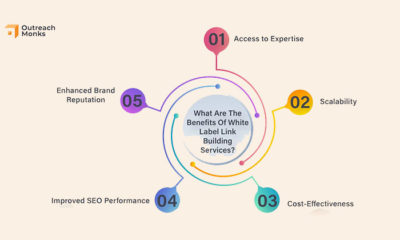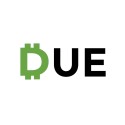Politics
Altcoins: Exploring the Best Cryptocurrencies Beyond BTC
Published
12 months agoon
By
Drew Simpson
The world of cryptocurrencies goes beyond Bitcoin (BTC), with a plethora of alternatives offering unique features, use cases, and potential for growth. If you’re looking to diversify your crypto portfolio or explore beyond Bitcoin, this article provides an in-depth analysis of the top Bitcoin alternatives. From Ethereum to Cardano, Litecoin to Ripple, we’ll cover the most prominent alternatives in the market and discuss their features, benefits, risks, and investment strategies.
Introduction
As the first and most well-known cryptocurrency, Bitcoin has paved the way for a digital revolution in the financial landscape, even capturing the attention of sports enthusiasts seeking to wager on NFL odds. However, Bitcoin’s dominance is not without limitations. Transaction speed, scalability, and smart contract functionality are areas where Bitcoin falls short. This realization led to the emergence of alternative cryptocurrencies, or altcoins, each designed to address specific shortcomings while introducing innovative concepts.
Altcoins: Understanding Bitcoin and Its Limitations
Bitcoin, created by the pseudonymous Satoshi Nakamoto, was the first decentralized digital currency, operating on a peer-to-peer network. Its primary function is to facilitate secure and transparent financial transactions. However, Bitcoin’s blockchain technology has limitations when it comes to transaction speed and scalability. These shortcomings have also given rise to a wide range of alternative cryptocurrencies, collectively known as altcoins.
The Rise of Altcoins: Explaining the Concept
Altcoins, short for “alternative coins,” are cryptocurrencies other than Bitcoin. They have emerged as alternatives to the original digital currency, offering different features, use cases, and technologies. Examples of popular altcoins include Ethereum, Litecoin, Ripple, and Cardano, among thousands of others.
Factors to Consider When Choosing Altcoins
When considering Bitcoin alternatives, it’s crucial to evaluate various factors to make an informed investment decision. These factors include:
- Firstly, Use Case: Understand the purpose and real-world applications of the altcoin.
- Technology: Evaluate the underlying blockchain technology and its scalability, security, and innovation potential.
- Development Team: Assess the expertise and track record of the development team behind the altcoin.
- Market Capitalization: Consider the altcoin’s market size and liquidity.
- Community Support: Lastly, analyze the strength and engagement of the altcoin community.
Prominent Altcoins
- Ethereum (ETH): Known as the second-largest cryptocurrency, Ethereum is a decentralized platform that enables the creation of smart contracts and decentralized applications (DApps). It has also gained popularity for its versatility and potential for building decentralized finance (DeFi) solutions.
- Litecoin (LTC): Created by Charlie Lee, a former Google engineer, Litecoin is often referred to as the “silver to Bitcoin’s gold.” It offers faster transaction confirmation times and a different hashing algorithm, making it a popular choice for everyday transactions.
- Ripple (XRP): Ripple stands out for its focus on enabling fast and low-cost international money transfers. Additionally, its native cryptocurrency, XRP, plays a crucial role in facilitating liquidity and streamlining cross-border transactions.
- Cardano (ADA): Introduced as a useful Bitcoin alternative and an “Ethereum killer,” Cardano aims to provide a secure and scalable platform for the development of DApps and smart contracts. It emphasizes scientific research, peer-reviewed development, and sustainability.
- Bitcoin Cash (BCH): A fork of Bitcoin, Bitcoin Cash aims to improve transaction speed and scalability while maintaining the decentralized nature of the original cryptocurrency. It offers lower transaction fees and larger block sizes than Bitcoin.
- Stacks (STX): Stacks is a unique altcoin that leverages the security of the Bitcoin blockchain to enable smart contracts and decentralized applications. In addition its focus is on integrating decentralized finance (DeFi) applications with Bitcoin’s security and network effect.
- Binance Coin (BNB): Binance Coin serves as the medium of exchange for the Binance cryptocurrency exchange. It offers benefits such as reduced trading fees, token burns, and participation in token sales on the Binance platform.
- Cosmos (ATOM): Cosmos aims to solve the interoperability challenges faced by different blockchains. It enables the exchange of assets and data between various independent blockchains, fostering a connected and scalable ecosystem.
Features and Benefits of Each Altcoin
Each of these Bitcoin alternatives comes with its own set of features and benefits:
-
Ethereum (ETH):
- Smart contract functionality for decentralized applications (DApps).
- Robust developer community and ecosystem.
- Altcoin Potential for building decentralized finance (DeFi) solutions.
-
Litecoin (LTC):
- Faster transaction confirmation times compared to Bitcoin.
- Well-established and recognized as a reliable cryptocurrency.
- Popular altcoin for everyday transactions.
-
Ripple (XRP):
- Fast and low-cost international money transfers.
- Designed for seamless integration with traditional financial systems.
- Also improves liquidity and efficiency in cross-border transactions.
-
Cardano (ADA):
- A scientifically grounded approach to blockchain development.
- Emphasis on security, scalability, and sustainability.
- Aims to offer an efficient and secure platform for decentralized applications.
-
Bitcoin Cash (BCH):
- Larger block sizes for faster transaction processing.
- Lower transaction fees compared to Bitcoin.
- Maintains the decentralized nature of Bitcoin.
-
Stacks (STX):
- Leverages the security of the Bitcoin blockchain for smart contracts.
- Focuses on integrating decentralized finance (DeFi) with Bitcoin’s security.
- Allows developers to build applications on top of the Bitcoin network.
-
Binance Coin (BNB):
- Medium of exchange for the Binance cryptocurrency exchange.
- Offers benefits such as reduced trading fees and token burns.
- Lastly, provides opportunities to participate in token sales on the Binance platform.
-
Cosmos (ATOM):
- Solves interoperability challenges between different blockchains.
- Enables the exchange of assets and data across independent blockchains.
- Also promotes a connected and scalable blockchain ecosystem.
Investing in Altcoins: Tips and Strategies for
When investing in Bitcoin alternatives, it’s important to conduct thorough research and consider the following tips:
- Firstly, diversify Your Portfolio: Spread your investments across different cryptocurrencies to mitigate risk.
- Do Your Due Diligence: Research the altcoin’s technology, team, use case, and market potential.
- Monitor Market Trends: Stay informed about industry news, market sentiment, and regulatory developments.
- Set Realistic Goals: Define your investment objectives and time horizon.
- Finally, Consult with Experts: Seek advice from experienced investors or financial advisors who specialize in cryptocurrencies.
Conclusion
In conclusion, Bitcoin alternatives, or altcoins, provide investors with opportunities to diversify their cryptocurrency portfolios and explore innovative blockchain solutions. From Ethereum’s smart contracts to Ripple’s cross-border payments, each altcoin offers unique features and benefits. However, investing in altcoins comes with risks and challenges, and thorough research is essential. As the cryptocurrency market evolves, Bitcoin’s dominance is expected to continue, while altcoins carve their own niches and contribute to the expanding crypto ecosystem.
Deanna Ritchie
Managing Editor at ReadWrite
Deanna is the Managing Editor at ReadWrite. Previously she worked as the Editor in Chief for Startup Grind and has over 20+ years of experience in content management and content development.
You may like
-


From Crash to Comeback: Exploring Crashed Grand Cherokee Restoration
-


Exploring the Pros and Cons of Private Label Backlinks
-


The Download: building anti-aging hype, and exploring the universe with sound
-


Dogecoin and Polygon Price Prediction and Beyond: a Look at Key Altcoins for 2023
-


Why is Artificial Intelligence Important? Exploring More Deeply
-


The Metaverse: Exploring the Revolutionary Use Cases and Benefits
Politics
Fintech Kennek raises $12.5M seed round to digitize lending
Published
7 months agoon
10/11/2023By
Drew Simpson
London-based fintech startup Kennek has raised $12.5 million in seed funding to expand its lending operating system.
According to an Oct. 10 tech.eu report, the round was led by HV Capital and included participation from Dutch Founders Fund, AlbionVC, FFVC, Plug & Play Ventures, and Syndicate One. Kennek offers software-as-a-service tools to help non-bank lenders streamline their operations using open banking, open finance, and payments.
The platform aims to automate time-consuming manual tasks and consolidate fragmented data to simplify lending. Xavier De Pauw, founder of Kennek said:
“Until kennek, lenders had to devote countless hours to menial operational tasks and deal with jumbled and hard-coded data – which makes every other part of lending a headache. As former lenders ourselves, we lived and breathed these frustrations, and built kennek to make them a thing of the past.”
The company said the latest funding round was oversubscribed and closed quickly despite the challenging fundraising environment. The new capital will be used to expand Kennek’s engineering team and strengthen its market position in the UK while exploring expansion into other European markets. Barbod Namini, Partner at lead investor HV Capital, commented on the investment:
“Kennek has developed an ambitious and genuinely unique proposition which we think can be the foundation of the entire alternative lending space. […] It is a complicated market and a solution that brings together all information and stakeholders onto a single platform is highly compelling for both lenders & the ecosystem as a whole.”
The fintech lending space has grown rapidly in recent years, but many lenders still rely on legacy systems and manual processes that limit efficiency and scalability. Kennek aims to leverage open banking and data integration to provide lenders with a more streamlined, automated lending experience.
The seed funding will allow the London-based startup to continue developing its platform and expanding its team to meet demand from non-bank lenders looking to digitize operations. Kennek’s focus on the UK and Europe also comes amid rising adoption of open banking and open finance in the regions.
Featured Image Credit: Photo from Kennek.io; Thank you!
Radek Zielinski
Radek Zielinski is an experienced technology and financial journalist with a passion for cybersecurity and futurology.
Politics
Fortune 500’s race for generative AI breakthroughs
Published
7 months agoon
10/11/2023By
Drew Simpson
As excitement around generative AI grows, Fortune 500 companies, including Goldman Sachs, are carefully examining the possible applications of this technology. A recent survey of U.S. executives indicated that 60% believe generative AI will substantially impact their businesses in the long term. However, they anticipate a one to two-year timeframe before implementing their initial solutions. This optimism stems from the potential of generative AI to revolutionize various aspects of businesses, from enhancing customer experiences to optimizing internal processes. In the short term, companies will likely focus on pilot projects and experimentation, gradually integrating generative AI into their operations as they witness its positive influence on efficiency and profitability.
Goldman Sachs’ Cautious Approach to Implementing Generative AI
In a recent interview, Goldman Sachs CIO Marco Argenti revealed that the firm has not yet implemented any generative AI use cases. Instead, the company focuses on experimentation and setting high standards before adopting the technology. Argenti recognized the desire for outcomes in areas like developer and operational efficiency but emphasized ensuring precision before putting experimental AI use cases into production.
According to Argenti, striking the right balance between driving innovation and maintaining accuracy is crucial for successfully integrating generative AI within the firm. Goldman Sachs intends to continue exploring this emerging technology’s potential benefits and applications while diligently assessing risks to ensure it meets the company’s stringent quality standards.
One possible application for Goldman Sachs is in software development, where the company has observed a 20-40% productivity increase during its trials. The goal is for 1,000 developers to utilize generative AI tools by year’s end. However, Argenti emphasized that a well-defined expectation of return on investment is necessary before fully integrating generative AI into production.
To achieve this, the company plans to implement a systematic and strategic approach to adopting generative AI, ensuring that it complements and enhances the skills of its developers. Additionally, Goldman Sachs intends to evaluate the long-term impact of generative AI on their software development processes and the overall quality of the applications being developed.
Goldman Sachs’ approach to AI implementation goes beyond merely executing models. The firm has created a platform encompassing technical, legal, and compliance assessments to filter out improper content and keep track of all interactions. This comprehensive system ensures seamless integration of artificial intelligence in operations while adhering to regulatory standards and maintaining client confidentiality. Moreover, the platform continuously improves and adapts its algorithms, allowing Goldman Sachs to stay at the forefront of technology and offer its clients the most efficient and secure services.
Featured Image Credit: Photo by Google DeepMind; Pexels; Thank you!
Deanna Ritchie
Managing Editor at ReadWrite
Deanna is the Managing Editor at ReadWrite. Previously she worked as the Editor in Chief for Startup Grind and has over 20+ years of experience in content management and content development.
Politics
UK seizes web3 opportunity simplifying crypto regulations
Published
7 months agoon
10/10/2023By
Drew Simpson
As Web3 companies increasingly consider leaving the United States due to regulatory ambiguity, the United Kingdom must simplify its cryptocurrency regulations to attract these businesses. The conservative think tank Policy Exchange recently released a report detailing ten suggestions for improving Web3 regulation in the country. Among the recommendations are reducing liability for token holders in decentralized autonomous organizations (DAOs) and encouraging the Financial Conduct Authority (FCA) to adopt alternative Know Your Customer (KYC) methodologies, such as digital identities and blockchain analytics tools. These suggestions aim to position the UK as a hub for Web3 innovation and attract blockchain-based businesses looking for a more conducive regulatory environment.
Streamlining Cryptocurrency Regulations for Innovation
To make it easier for emerging Web3 companies to navigate existing legal frameworks and contribute to the UK’s digital economy growth, the government must streamline cryptocurrency regulations and adopt forward-looking approaches. By making the regulatory landscape clear and straightforward, the UK can create an environment that fosters innovation, growth, and competitiveness in the global fintech industry.
The Policy Exchange report also recommends not weakening self-hosted wallets or treating proof-of-stake (PoS) services as financial services. This approach aims to protect the fundamental principles of decentralization and user autonomy while strongly emphasizing security and regulatory compliance. By doing so, the UK can nurture an environment that encourages innovation and the continued growth of blockchain technology.
Despite recent strict measures by UK authorities, such as His Majesty’s Treasury and the FCA, toward the digital assets sector, the proposed changes in the Policy Exchange report strive to make the UK a more attractive location for Web3 enterprises. By adopting these suggestions, the UK can demonstrate its commitment to fostering innovation in the rapidly evolving blockchain and cryptocurrency industries while ensuring a robust and transparent regulatory environment.
The ongoing uncertainty surrounding cryptocurrency regulations in various countries has prompted Web3 companies to explore alternative jurisdictions with more precise legal frameworks. As the United States grapples with regulatory ambiguity, the United Kingdom can position itself as a hub for Web3 innovation by simplifying and streamlining its cryptocurrency regulations.
Featured Image Credit: Photo by Jonathan Borba; Pexels; Thank you!
Deanna Ritchie
Managing Editor at ReadWrite
Deanna is the Managing Editor at ReadWrite. Previously she worked as the Editor in Chief for Startup Grind and has over 20+ years of experience in content management and content development.
